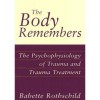Please use the above links to browse some resources I hope you’ll find useful. These include organisations, websites, journals and books.
DVD Resource of the Month

Healing Homes: An Alternative, Swedish Model for Healing Psychosis by Daniel Mackler
http://www.iraresoul.com/dvd2.html
Healing Homes, a feature-length documentary film directed by Daniel Mackler, chronicles the work of the Family Care Foundation in Gothenburg, Sweden — a program which, in this era of multi-drug cocktails and psychiatric diagnoses-for-life, helps people recover from psychosis without medication.
The organization, backed by over twenty years of experience, places people who have been failed by traditional psychiatry in host families — predominately farm families in the Swedish countryside — as a start for a whole new life journey.
Host families are chosen not for any psychiatric expertise, rather, for their compassion, stability, and desire to give back. People live with these families for upwards of a year or two and become an integral part of a functioning family system. Staff members offer clients intensive psychotherapy and provide host families with intensive supervision.
The Family Care Foundation eschews the use of diagnosis, works within a framework of striving to help people come safely off psychiatric medication, and provides their services, which operate within the context of Swedish socialized medicine, for free.
Healing Homes weaves together interviews with clients, farm families, and staff members to create both a powerful vision of medication-free recovery and an eye-opening critique of the medical model of psychiatry.
Print Resource of the Month
 The Body Remembers:The Psychophysiology of Trauma and Trauma Treatment
The Body Remembers:The Psychophysiology of Trauma and Trauma Treatment
Rothschild, B (2000). W. W. Norton & Co.
Traumatised people hold a memory of that trauma in their brains and bodies. This is the first book to link this phenomenon of somatic memory and the impact of trauma on the body. Reducing the chasm between scentific theory and clinical practice, Rothschild presents techniques for addressing the memory in the body.




